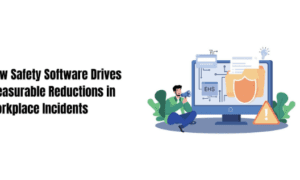Planning for retirement is a critical step for everyone, but for women over 50, it carries unique considerations. From longer life expectancy to potential career interruptions, women often face distinct financial challenges. If you’re entering your 50s and thinking about retirement, here are five essential steps to help you plan confidently and protect your future.
Understand Your Retirement Income Sources
Knowing where your money will come from in retirement is the foundation of any solid plan. Common sources include:
Social Security
401(k) or 403(b) plans
IRAs
Pensions (if applicable)
Personal savings or investments
Women over 50 should review all accounts and income projections carefully. Log in to your Social Security account to see your estimated benefits and consider how spousal benefits or claiming strategies might increase your monthly payout.
Account for Longer Life Expectancy
On average, women live about 5 years longer than men, which means your retirement savings needs to stretch further. A longer lifespan increases the risk of outliving your savings, especially with rising healthcare costs. Consider working with a financial advisor to model your finances through age 90 or beyond to ensure you won’t run out of funds in your later years.
Maximize Retirement Contributions Now
Your 50s are often your peak earning years, making it the perfect time to boost your retirement savings. Take advantage of “catch-up contributions”:
401(k): You can contribute up to $30,500 annually in 2025 if you’re 50 or older.
IRA: Eligible individuals can contribute up to $8,000 per year.
Even small increases in savings now can significantly impact your financial security later. Consider automatically increasing your contributions each year or allocating bonuses or tax refunds toward retirement.
Don’t Overlook Healthcare Planning
Healthcare can be one of the biggest expenses in retirement. On average, a 65-year-old woman retiring today may need over $150,000 to cover medical costs in retirement, not including long-term care. Start planning now by:
Learning about Medicare and how it works
Considering a Health Savings Account (HSA) if you’re still eligible
Looking into long-term care insurance or alternative care options
Early preparation helps ensure healthcare costs don’t derail your retirement goals.
Create a Personal Retirement Vision
Finally, retirement isn’t just about finances, but it’s about your lifestyle and purpose. Take time to visualize what your ideal retirement looks like. Do you want to travel? Start a business? Volunteer or move closer to family?
Knowing your goals will help you create a financial plan that aligns with your dreams and values. It also keeps you motivated and focused on building a future you’re excited about.
Conclusion: It’s Never Too Late to Take Control
Turning 50 doesn’t mean it’s too late to plan, it means it’s time to focus. By understanding your income sources, preparing for longevity, increasing contributions, managing healthcare costs, and clarifying your vision, you can take control of your retirement journey with confidence. Every step you take now will help secure the freedom and peace of mind you deserve in the years ahead.
preparing for longevity, increasing contributions, managing healthcare costs, and clarifying your vision, you can take control of your retirement journey with confidence. Every step you take now will help secure the freedom and peace of mind you deserve in the years ahead.



































